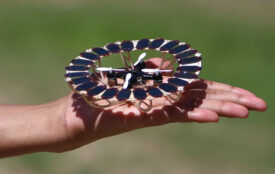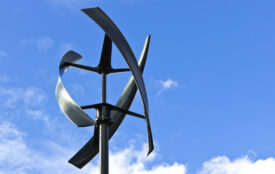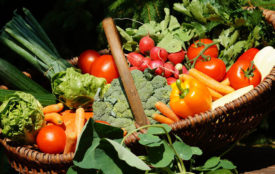“Sweedhart”: Do not fight weeds but use them as biomass
For western societies, access to foodstuffs is possible without a problem – but is it also a matter of course? Already today, farmers are suffering from low agricultural yields because weeds are affecting their fields.
Since the wild plants have developed resistances to herbicides, they can damage crop plants unhindered and as such are – long-term – threatening food safety. Instead of only fighting weeds, it is, however, possible to also profit from them: In the “Sweedhart” project, Fraunhofer UMSICHT is developing new methods to counter the burden caused by weeds and to utilize the plants as energy source at the same time.
For a long time already, weeds have been not just a problem of hobby gardeners but also for society at large: The wild plants grow on farmers’ fields and as such affect the healthy development of the crop plants cultivated there. Already now, the presence of the unwelcome guests has a negative impact on farmers’ crop yield and as such constitutes a threat to worldwide food safety. Currently, herbicides are being utilized to counter the burden caused by weeds. But in recent years the wild plants have increasingly developed resistances to the herbicides which is why their effectiveness has been decreasing more and more. At the same time, the development of new kinds of herbicides has been exhausted for the most part, or been discontinued via EU Directives due to environmental risks.
Weeds: Pest and energy source
As such, new alternatives are needed to reduce the worldwide burden caused by weeds to agriculturally cultivated fields. The “Sweethard” project, started at the Fraunhofer Institute for Environmental, Safety, and Energy Technology UMSICHT in May 2016, wants to tackle exactly that interface. “We are addressing the problem by researching how the infestation of fields with weeds can be inhibited without herbicides”, said Dr. Christoph Glasner of Fraunhofer UMSICHT, who is coordinating the research project. At the same time, the research is to make a contribution to biomass production – and also in this context, weeds are playing an important role.
During the field harvest, an additional 25 percent of chaff are generated, approximately, due to the processing of the combine harvester, consisting of short-cut hay, straw, but also energy-rich seeds of weeds. Most of the time, these residues are returned to the fields without further treatment. As a result, not just does the prevalent energy potential stored in the biomass remain unutilized but the next generation of weeds can also grow on the fields. “Therefore, the objective of Sweedhart is to thermally disinfect the seeds of the weeds already during harvesting through the combine harvester’s waste heat and thus prevent germination of the weeds”, explained Dr. Glasner.
More biomass, less CO2 emission
In a next step, the research group will investigate how the chaff can further be utilized: For example as renewable energy source through incineration but also as starting substance for materials, or as new source for animal feed. Within the 3-year term of the project, the realizability of the concept is to be investigated thoroughly. “At the end, we want to provide a catalog of successful as well as sustainable measures that prevent the burdening of fields by weeds and that counter the increasing problem of herbicide resistance and the invasive growth of weeds.” Through the integration of the weeds into biomass production, the Sweedhart concept harbors a great potential to co-design a sustainable agriculture and to make an important contribution on the path towards a bio-based economy.
At present, the project team is developing a concept for sanitization during harvesting, is creating mechanical measures for spreading fewer weeds, and is evaluating the options for the utilization of ancillary products.
About the project
As one of 14 European projects in the context of FACCE SURPLUS (Sustainable and Resilient agriculture for food and non-food systems), “Sweedhart” is being sponsored with a total of EUR 1.45 million. FACCE SURPLUS is a project started by the European Union that strives for a sustainable biomass production and biomass conversion for utilization as foodstuffs and for industrial utilization.
In addition to Fraunhofer UMSICHT, four other project partners are participating in “Sweedhart”:
- Fraunhofer-Gesellschaft
- Norwegian University of Science and Technology (NTNU), Norwegen
- University of Copenhagen, Denmark
- CLAAS Selbstfahrende Erntemaschinen GmbH, Germany








